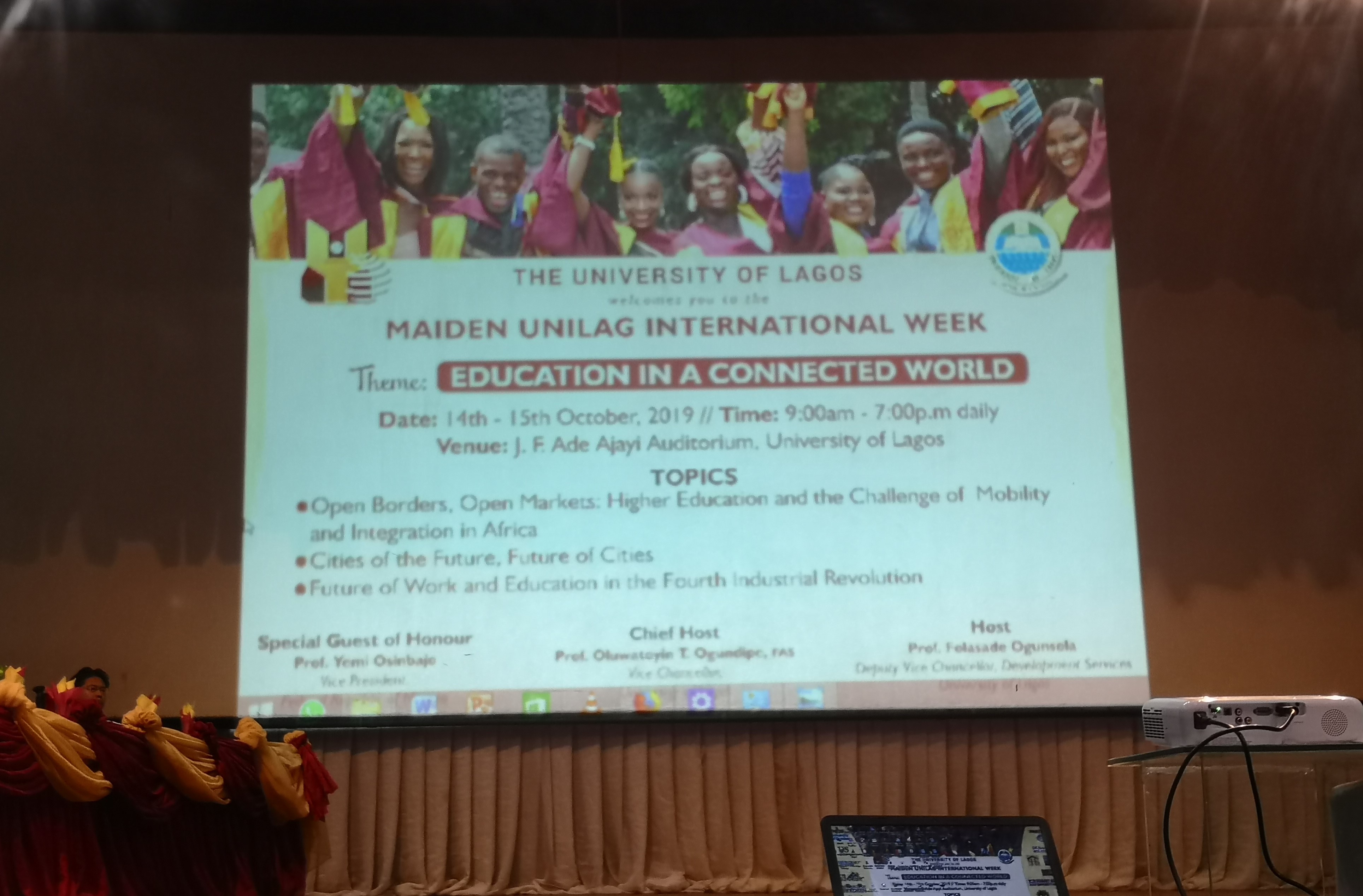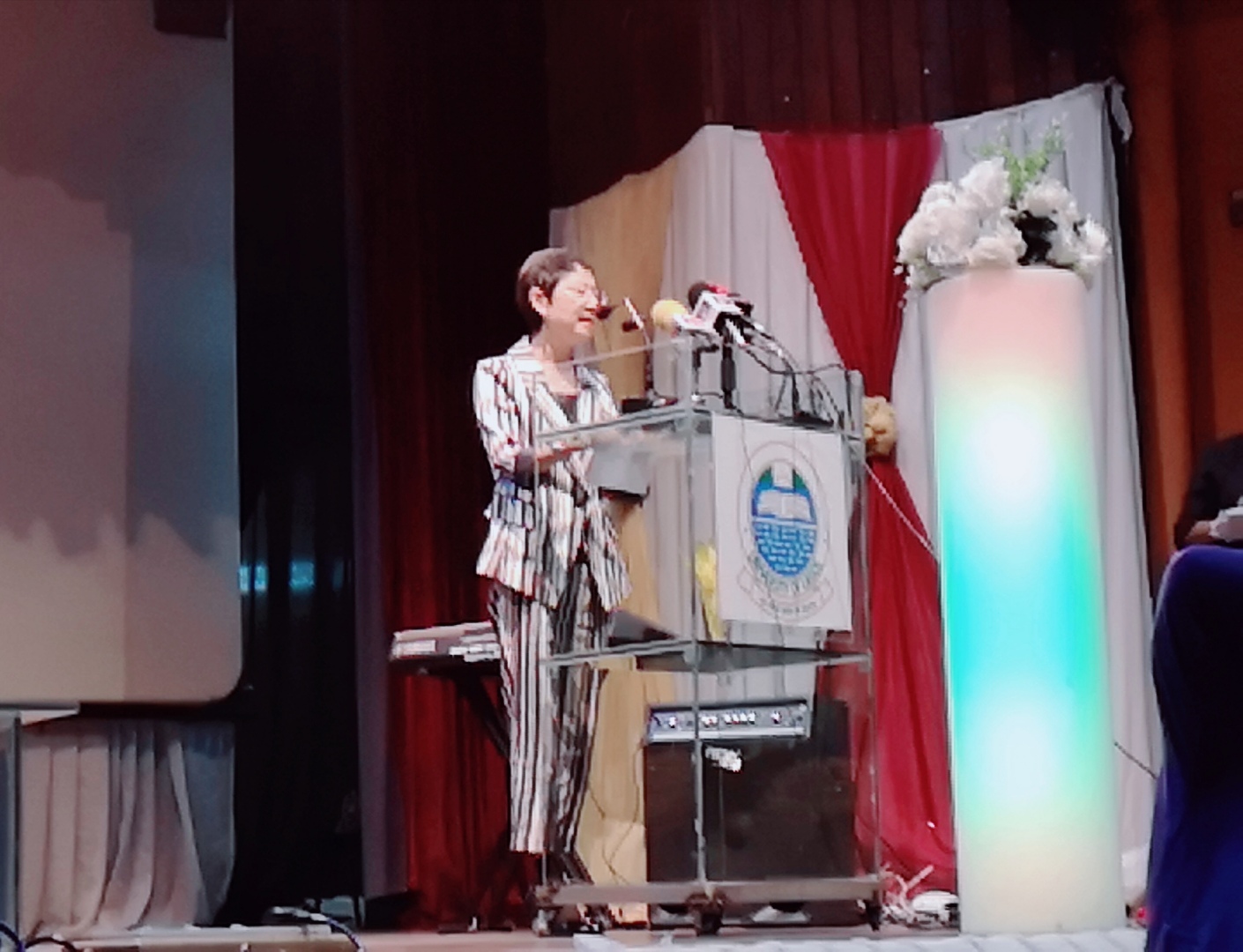
Introduction: The opening ceremony of International Education Week was held in Nigeria on October 14th 2019, attended by the Minister of Education of Nigeria, the Consul General of China in Lagos, the Consul Generals of France, Finland and Germany in Nigeria, and by Ms. Liu Jinghui, senior researcher of the Taihe Institute and the former Secretary General of the China Scholarship Council. Representatives from universities of ten countries including China, Britain, France, and South Africa attended the ceremony as well.

Ms. Liu shared some insights into utilizing the collaboration of universities around the world to facilitate the internationalization of higher education, and the value of taking advantage of economic and cultural exchanges between different nations participating in the International Education Week.
The following is the transcribed version of Ms. Liu’s keynote speech:
Your Excellency Professor Yemi Osiban jo GCON, Vice President of Federal Republic of Nigeria, the honorable Minister of Education, Mr. Adamu Admu, Respected Consulate General Mr. Chu maiming, Vice Chancellor of University of Lagos, Professor Oluwatoyin Gonundipe, ladies and gentlemen, good morning!
It is of my great pleasure to be invited to join in you in this cheerful event just after the celebration of the 59th anniversary of the founding of the Federal Republic of Nigeria, I have also just witnessed part of the celebration ceremony of the 70th anniversary of the founding of the People’s Republic of China in Beijing on October 1st. On behalf of the China Association for International Education, together with two of my colleagues from Chinese universities, I am going to participate in the Africa-China-Canada Conference on Higher Education this afternoon, and I wish the series of activities of the International Week of University of Lagos a complete success!
Ladies and gentlemen, I would like to share with you some of the progresses made by China during the past 70 years in the educational field, especially for the internationalization of higher education during the past 40 years after the opening up. The first point I would like to make is that China has developed into one of the leading countries in the world because of the complete and diversified educational system established during the past 70 years. More than 270 million talents have been cultivated and 48.2% of the present labor force has received higher education, and the average individual educational time has exceeded 13.6 years. In 2018, the total investment of education has reached 460 billion, with a 13.4% increase compared with that of the founding of the P.R.C.
The second point I would like to share with you is about the internationalization of higher education, which is more related to today’s topic. The Chinese government has attached great importance to the opening up in the higher educational field. Here are some of the hard data: China has established educational collaboration relationship with 188 countries and regions and 47 international organizations in the world, and has signed academic degree acknowledgement agreements with 48 countries and regions; by the end of 2018, more than 3.6 million talents who have studied abroad have come back to serve the country, which is 85% of the total number. Last year, there were 492 thousand international students from 196 countries and regions in the world to study in China, and 258 thousand students are studying for academic degrees. Among them, around 4000 were Nigerian students. China has become the first destination of international study in Asia. We have also established 530 Confucius Institutes in 155 countries and regions in the world.
The third point I want to share with you is that we have also developed regional study and research. As the former Secretary General of China Scholarship Council, I have personally initiated the program in China of different national languages, and Hausa language is one of them. Every two years we send very talented students to come to study in Africa to improve their Hausa language and their understanding of Nigerian culture.
Therefore, I believe it’s important that we share, we exchange ideas of different cultures, just like what we are going to do here at the International Week activities to promote the economic and cultural understanding between different nations.
Finally, I would like to conclude this speech with Chinese philosopher and politician, Guanzhong’s famous remarks: “If your plan is for one year, plant rice; If your plan is for ten years, plant trees; If your plan is for one hundred years, educate talents.” Thank you!!